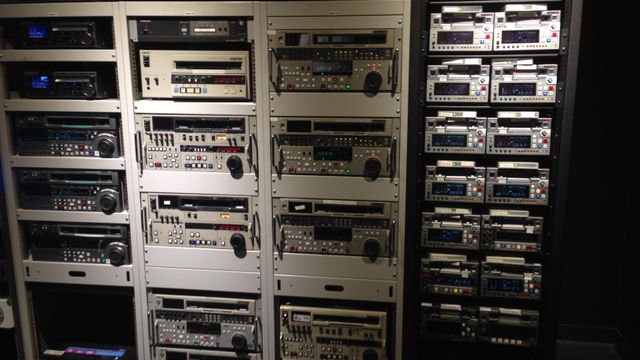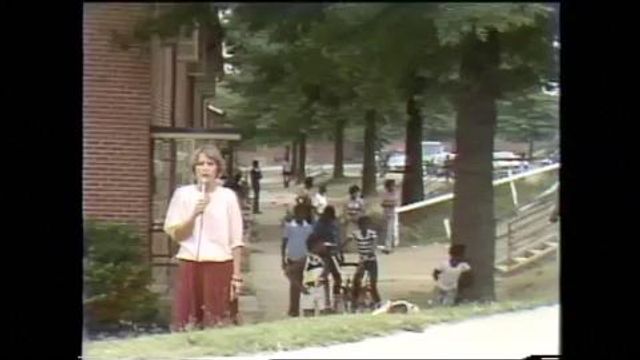WRAL project preserves old video for the future
History is a fleeting thing. So is the lifespan of a videotape. As technology evolves, news organizations around the country find themselves with a priceless store of images from the last half-century but no way to access it.
Posted — UpdatedIn a world dominated by DVRs and YouTube, Cal Johnson has been watching a lot of old videotape. He's an archivist working with Capitol Broadcasting, WRAL-TV's parent company, to preserve decades of history.
"You're constantly seeing stuff and catching things, and going, 'Oh, I remember that,'" Johnson said.
History is a fleeting thing. So is the lifespan of a videotape. As technology evolves, news organizations around the country find themselves with a priceless store of images from the last half-century but no way to access it.
Enter Nuray Media, a company run by Rick and Dee Ray.
"Probably 95 percent of those TV stations have never done anything with their legacy content," Rick Ray said.
"We feel like there is a real wealth of materials that is hidden away in many television stations, corporations and universities that is very valuable. As much as 60 years of content is buried in basements," he said.
The entire WRAL News videotape archive dates from the late 1970s and numbers around 14,000 tapes. Capitol is working with Nuray to get it digitized, saved and rescued from obscurity.
"It's interesting, a lot of this stuff dates back before me being alive," Johnson said.
Rick and Dee Ray have been in the television business a long time, too. As the Rays behind Raycom Sports Network, they've seen video technology change over the years and recognized the need now to act fast in order to save all this history.
As formats evolved from film to tape to disc and now computer files stored in the cloud, older recordings are harder to access.
"There aren't the machines out there to even play them back," Rick Ray said. "So we've collected a lot of machines that are now ancient relics in a way.
Kaitlyn Navarro, a quality control analyst with Nuray, says her job is like a history lesson.
As she scans the digitized video for technical quality, she gets a lesson in how news ethics and production standards have changed over the years.
"I noticed that during the '70s, they didn’t really care if they showed bodies or not, whereas in the 2000s, they mention something really terrible happened but won't really show it," she said.
Johnson, too, has noticed changes in news delivery as he watches old tapes.
"It's interesting to see what was politically correct in 1975 to '85 to '95," he said. "When you see some of the words with the on-screen graphics, you think, 'You know what? I don't think that would fly today.'"
The news archives contain the story of the United States, Rick Ray said.
"Just think, if you could go back 40 or 50 years and see all the things that have led to changes in the United States, that would be a really interesting story," he said.
Nuray is translating the WRAL archive a bit at a time. The last of the old tapes were boxed up this week and taken to South Carolina for digitizing.
• Credits
Copyright 2024 by Capitol Broadcasting Company. All rights reserved. This material may not be published, broadcast, rewritten or redistributed.






